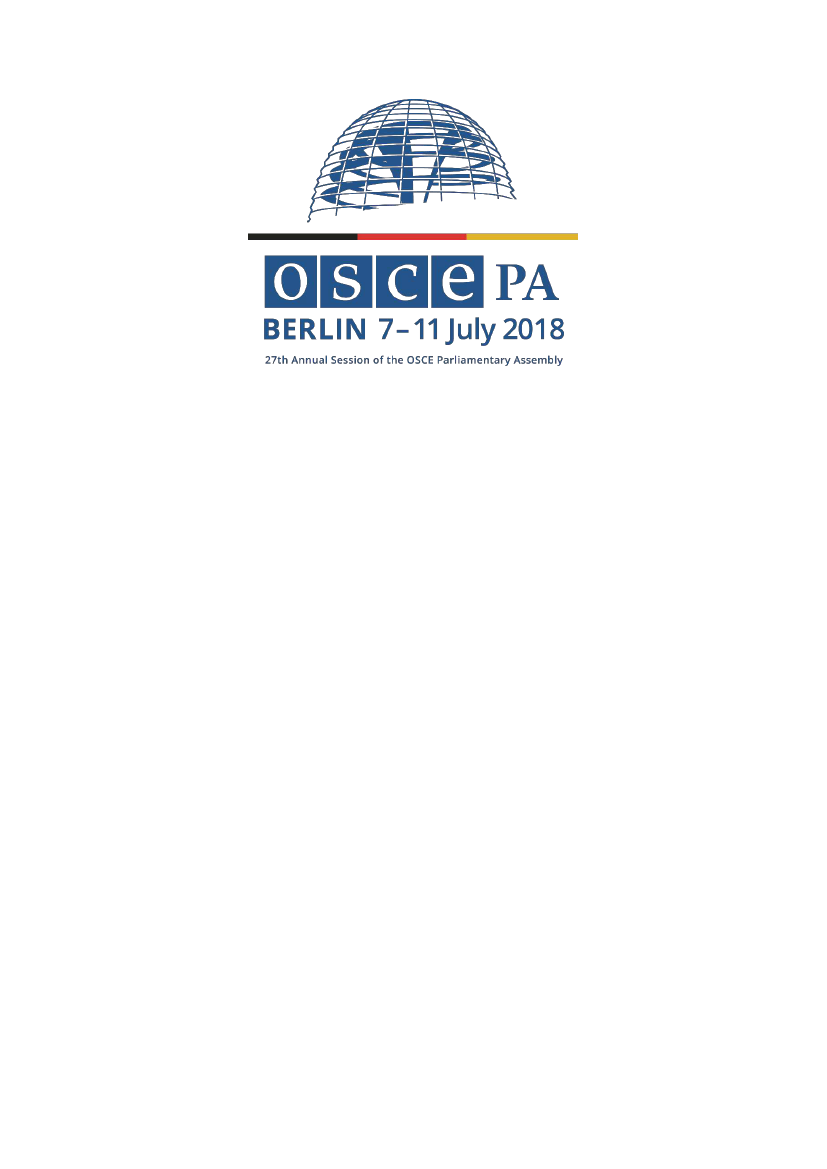
AS (18) RP 3 E
Original: English
REPORT
FOR THE GENERAL COMMITTEE ON
DEMOCRACY, HUMAN RIGHTS AND
HUMANITARIAN QUESTIONS
Implementing OSCE Commitments:
The Role of Parliaments
RAPPORTEUR
Mr. Kyriakos Hadjiyianni
Cyprus
BERLIN, 7
–
11 JULY 2018